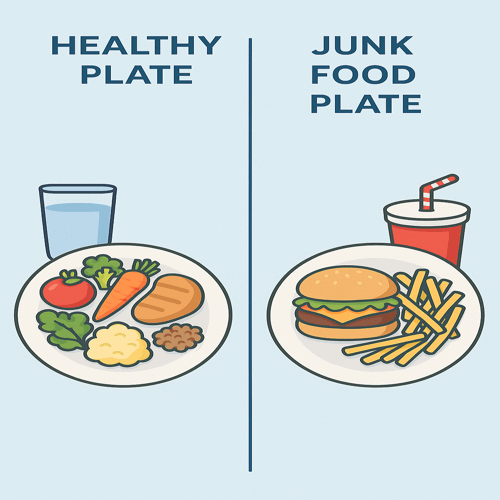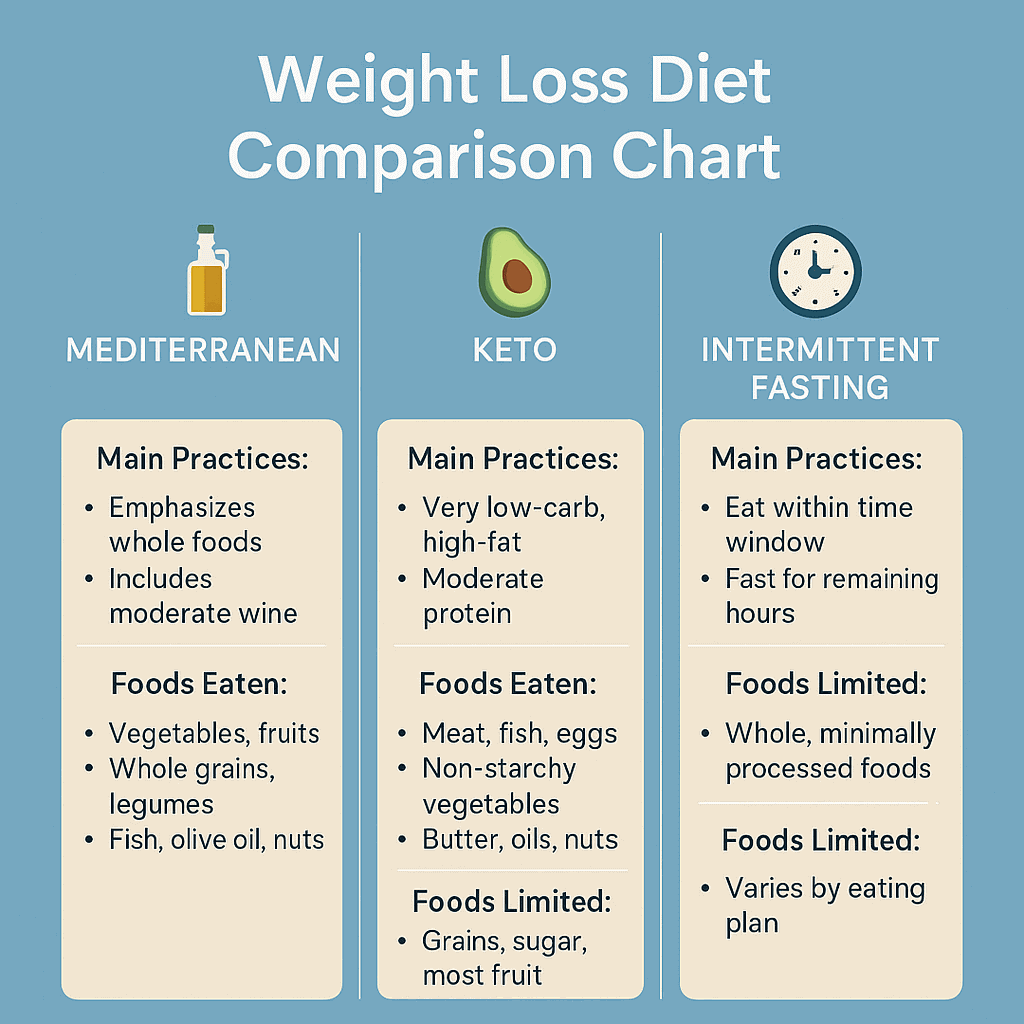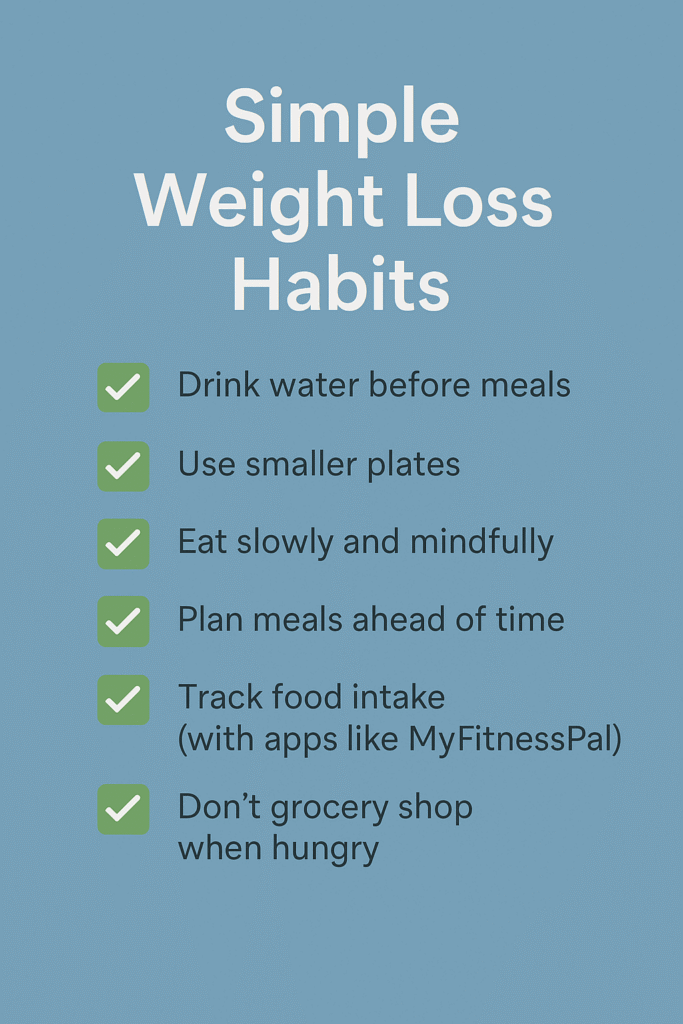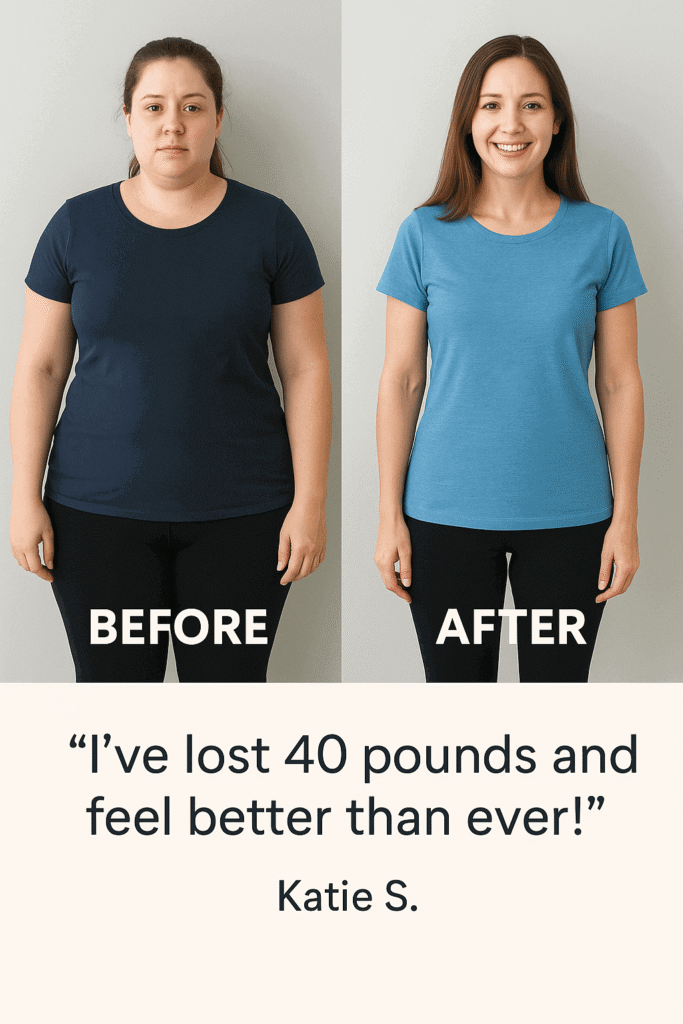Introduction
Weight loss is one of the most common health goals across the globe. Whether you’re looking to improve your health, improve your confidence, or increase your energy levels, losing weight can dramatically affect your life. With so much contradictory information available online, it can be challenging to know where to start.
In this guide, we will walk you through nourishing and effective weight loss practices in 2025, using scientific evidence for support and a focus on sustainable success. This guide will provide clarity on the truth about fat loss, necessary diet and exercise tips, and realistic lifestyle changes you’ll be able to stick to successfully!

What Is Weight Loss, Really?
For weight loss to occur, you need to expend more calories than you take in. But burning more calories than you eat is not the whole story — it also includes hormones, metabolism, sleep, stress and more.
To lose weight both safely and effectively, it is helpful to understand the science of fat storage and energy balance.
Section 1: Why Weight Loss Is So Challenging
Despite what many diet ads promise, weight loss is not always easy. Here are a few reasons why:
- Your body resists change. It’s designed to keep you alive, not lean.
- Hormonal changes can increase hunger when you lose weight.
- Stress and poor sleep can increase cravings and fat storage.
- Fad diets often lead to quick gains, but not long-term success.
Section 2: How to Lose Weight Safely in 2025
Here are the top science-backed strategies for sustainable weight loss this year:
1. Follow a Calorie Deficit — But Don’t Starve
You need to eat fewer calories than you burn, but extreme restriction can backfire. A moderate deficit (300–500 calories/day) is ideal for losing 1–2 pounds per week.
2. Choose Nutrient-Dense Foods
Fill your plate with:
- Lean proteins (chicken, fish, eggs, tofu)
- Non-starchy vegetables (broccoli, spinach, peppers)
- Healthy fats (avocados, olive oil, nuts)
- Whole grains (quinoa, oats, brown rice)

3. Stay Active — Move Your Body Daily
You don’t need a gym. Aim for:
- Cardio (150 minutes/week): brisk walking, cycling, or swimming
- Strength training (2–3 times/week): build muscle to boost metabolism
- Daily movement: take the stairs, walk after meals, do chores
4. Get Enough Sleep
Lack of sleep raises ghrelin (hunger hormone) and lowers leptin (satiety hormone). Aim for 7–9 hours of restful sleep per night.
5. Manage Stress
Chronic stress increases cortisol, which is linked to belly fat. Practice:
- Meditation
- Deep breathing
- Nature walks
- Hobbies
Section 3: Best Diets for Weight Loss in 2025
1. Mediterranean Diet
Ranked the #1 healthiest diet for multiple years, it emphasizes:
- Vegetables, fruits, nuts, seeds
- Olive oil, fish, legumes
- Moderate wine, minimal red meat
2. Intermittent Fasting
This eating pattern limits when you eat, not what you eat. Common methods:
- 16:8 (16 hours fasting, 8-hour eating window)
- 5:2 (eat normally 5 days, eat 500–600 calories on 2 days)
3. High Protein, Low Carb
High-protein diets help reduce appetite and preserve muscle during fat loss.

Section 4: Common Weight Loss Myths (Debunked)
Myth 1: Carbs Make You Fat
Truth: Carbs aren’t the enemy. Excess calories lead to fat gain, not carbs alone.
Myth 2: Fat-Burning Supplements Work
Truth: Most fat-burners are unproven and unsafe. Whole foods are the real solution.
Myth 3: You Can Target Fat Loss
Truth: Spot reduction is a myth. You lose fat from all over your body—not just your belly.
Myth 4: You Need to Starve to Lose Weight
Truth: Starvation diets slow your metabolism and lead to binge eating.
Here are some supplements for weight loss:
Section 5: Simple Weight Loss Habits That Work
Small daily changes create big results over time. Try these habits:
- Drink water before meals
- Use smaller plates
- Eat slowly and mindfully
- Plan meals ahead of time
- Track food intake (with apps like MyFitnessPal)
- Don’t grocery shop when hungry

Section 6: Weight Loss Success Stories
Reading real-life success stories can motivate you. Here are examples of common themes:
- “I started walking daily and lost 30 pounds in 6 months.”
- “Meal prepping helped me stay consistent.”
- “Once I focused on health, not just the scale, results came naturally.”

Section 7: When to See a Doctor
Weight loss should be safe. Consult a healthcare provider if:
- You’re not losing weight despite consistent effort
- You experience extreme fatigue or mood changes
- You have a history of eating disorders
- You’re considering medication or surgery
Related Article: https://mohatop7.com/zelus-weighted-vest-review-enhance-your-workouts/
Conclusion: Start Small, Stay Consistent, See Results
Weight loss doesn’t happen overnight—but it can happen with the right strategy in place. A smart focus on overall nutrition, consistent movement, sleep deprivation, and stress management will create success habits for you.
Using consistency, and patience as a strategy, the most important thing to remember is that this journey is about your health, not just the scale!
FAQ: Quick Weight Loss Answers
Q: How much weight can I lose in 1 month?
A: 4-8 lbs is safe & sustainable.
Q: What’s the fastest way to lose belly fat?
A: Combine HIIT, strength training, and a low-sugar diet.
Q: Can I lose weight without exercise?
A: Yes, but exercise speeds up results & improves health.
Q: Why am I not losing weight?
A: Check for hidden calories, poor sleep, or stress.






